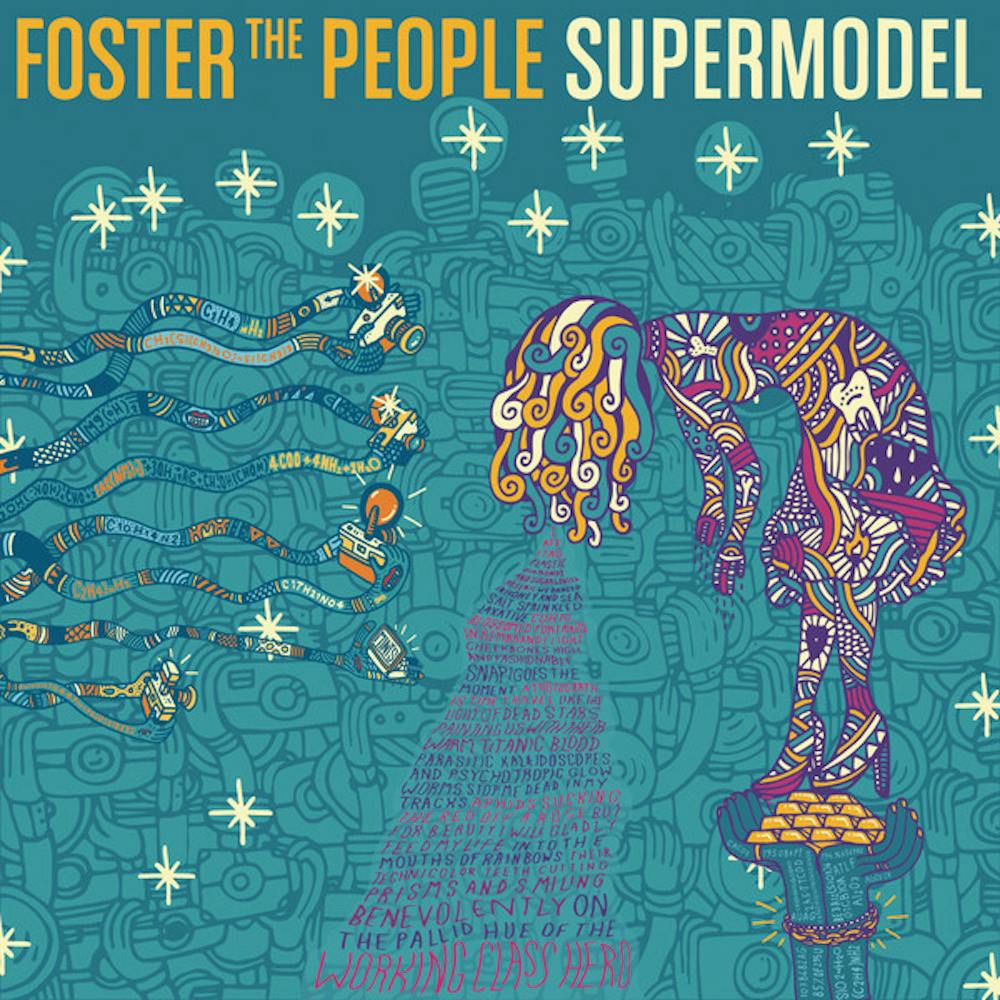Released: 3/18/2014
5/7 stars
In 2011, Foster the People exploded into popularity with their debut album, Torches. All summer long, “Pumped Up Kicks” played on radio stations across the country, reaching number three on Billboard’s Hot 100.
Torches groovy beats and sleek production earned Foster the People a huge fan base-from young hipsters at Coachella to soccer moms listening in their minivans- with “Houdini” also receiving considerable airtime and “Don’t Stop (Color on the Walls)” was remixed by various artists.
Prior to Torches, lead singer Mark Foster wrote jingles for Honey Bunches of Oats; suddenly, he went from writing cheesy lyrics about complex carbohydrates to performing around the world, at the most exclusive music festivals.
Before releasing the bands sophomore effort, Supermodel, Foster explained that the new album would be different from Torches. While recording, the band traveled from Morocco to California, and their travels greatly influence the album’s direction. Going a different route, Supermodel trades some dance beats for an acoustic guitar as Foster delves deep into introspection, examining the consequences of consumerism as well as figuring out his existential crisis, wondering of this, rock star life, if that’s all there really is.
Supermodel rejects the model that thrust the band into the charts; as the first single released, “Coming of Age,” combines elements of rock and roll and explores the existential crisis that Foster feels comes with being a rock star. In the album’s opener “Are You What You Want to Be?” Foster seems to evoke his inner Vampire Weekend, using West African beats to complement the existential crisis that he struggles with throughout the album, singing “Well I’m afraid of saying too much and ending up a martyr/but even more so I’m afraid to face god and say I was a coward.”
The band’s sophomore effort seems to also smooth off the rough edges from Torches. “Coming of Age” and “Nevermind” are both well-produced tracks that share some of the catchiness of Torches but without the “instant stickability” that made Torches so addictive and raw.
“Best Friend” is one of the only songs on Supermodel that sounds like it could be featured on Torches. Like many of the songs on Foster the People’s debut album, “Best Friend” uses high-energy dance beats to cover up the dark lyrics; this time Foster is singing about a friend who is hooked on drugs, and how hard it is to watch them spiral downwards, yet in a synth-y falsetto, Foster remind his drug-addled friend that “you oughta know/That I’m here no matter where you go/ (with your head hanging upside down).”
Foster explained that Supermodel was produced as a concept album, and listeners get a taste of what he meant in “Pseudologia Fantastica,” as the band takes listeners on a rollercoaster of sound, from a deep baritone to a high-pitched falsetto. The heavily distorted guitar amplifies the cosmic sound, lending it to be one of the best songs on the album. The title of the track is synonymous with pathological lying, alluding to a person in Foster’s past who’s lying habits got in the way of their relationship.
The album ends with “Fire Escape,” a slow acoustic track that is out of place compared to the rest of the album. Foster concludes the record by using his age and experience to give advice to younger people living in L.A., he reminisces, singing “I’ve watched dreamers find their legs/and I’ve seen the ones that come get reduced to bones and rags.” He’s been in the town long enough to know that not everyone is as lucky as he is to wake up one day writing jingles for a corporate cereal company and the next day he sees his band headlining Coachella. After spending the album questioning his fame and success, he grows to learn to accept himself, but makes sure that everyone knows that he is the exception, not the rule.
Must listens:
Best Friend
Pseudologia Fantastica
Fire Escape





